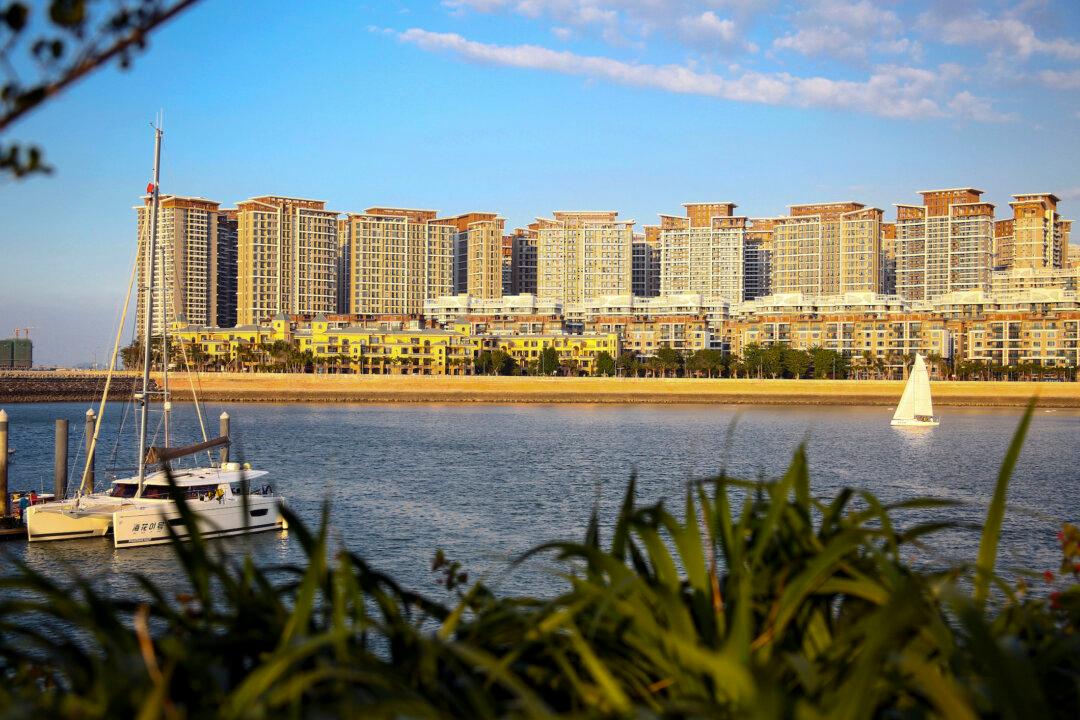Before resuming trading on Jan. 4, China’s troubled real estate giant Evergrande Group issued a notice disclosing a letter of decision it received from Danzhou City, Hainan Province, five days earlier. The letter ordered the demolition of 39 high-rise buildings on Ocean Flower Island, the company’s star project, to rectify damages to the marine environment incurred by the company.
Ocean Flower Island, the largest artificial island in the world, is actually made up of three separate artificial islands. Island 1 mostly contains hotels and amusement parks, such as Children’s World, Water Kingdom, Ocean Paradise, and an International Conference Center—28 businesses in total. Island 2 and Island 3 are mainly reserved for residential use. According to Evergrande’s website, the islands took 12 years to build, at a cost of hundreds of billions of yuan.





